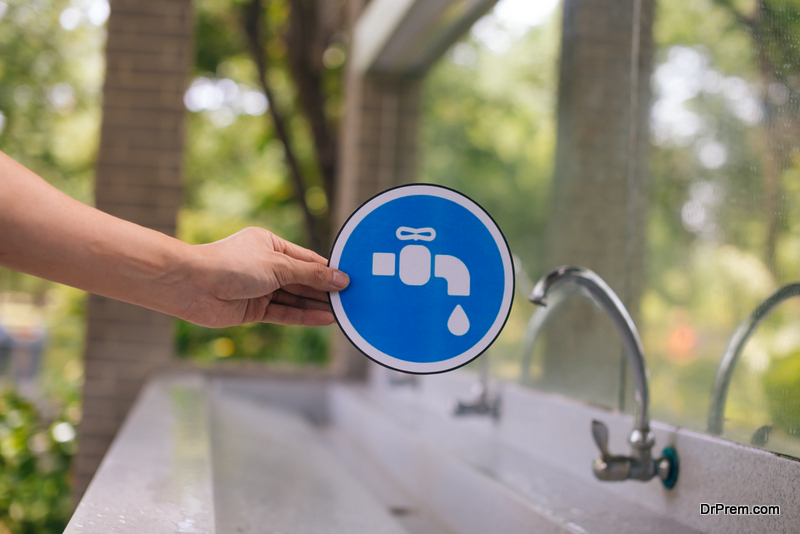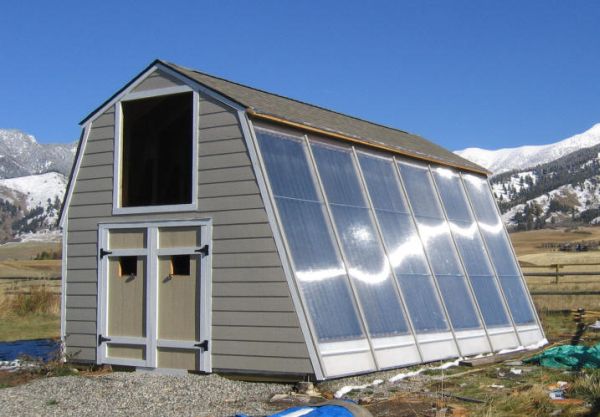Prepare for a drought. You never know when such a disaster strikes your place. Since 2015, Cape Town has been going through the worst drought in the century. Brazil, since 2014, is facing acute water shortage in 80 years. Many cities of India fail to supply adequate municipal water – with Chennai facing the worst drought in the last 74 years.
Blame it on global warming, scanty rainfall and poor water management. You need to plan ahead of the day zero when all the prime sources of water are likely to dry out. How would you save water for sustenance under such conditions?
The time is ripe to consider beforehand preparation before we face real danger. The United Nations project that by 2050, nearly 2/3 rd of the global population will be urban dwellers, creating an unprecedented demand for water. With water resources not expanding, will it be possible to tackle this issue?
13 water-saving tips to prepare for a drought:
Fortunately, saving water is the only feasible way to fight the looming crisis. To prepare for a drought, steps should be taken not only by civic authorities, but also by the civilians, so as not to see the Day Zero.
Here we go with some useful tips:
Install a rainwater harvest system:
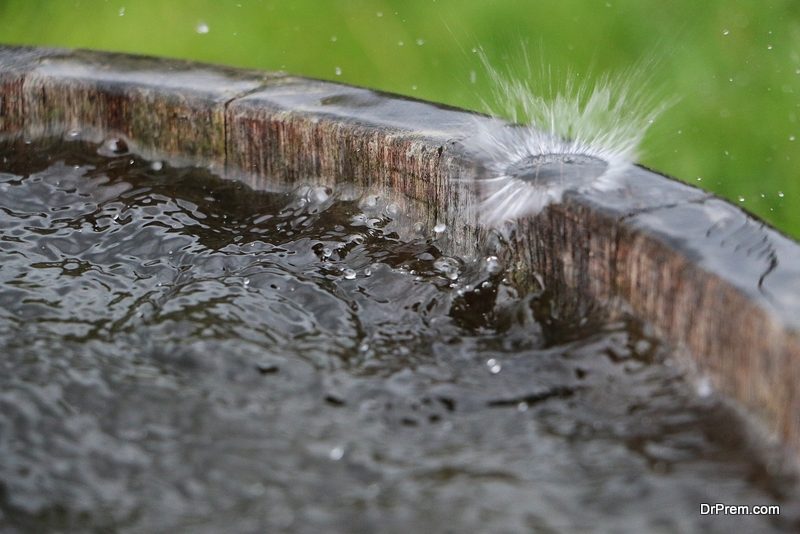 This is a quite inexpensive and high-yielding option to help you prepare for a drought much ahead. The best part is you can install it anywhere even in your balcony to save water for the dry days. Place it in a proper place to collect rainfall directly. Rainwater is probably safe to drink. But it is always recommended to get it filtered before drinking.
This is a quite inexpensive and high-yielding option to help you prepare for a drought much ahead. The best part is you can install it anywhere even in your balcony to save water for the dry days. Place it in a proper place to collect rainfall directly. Rainwater is probably safe to drink. But it is always recommended to get it filtered before drinking.
Collect water from the air conditioning:
Preparing for drought not only means saving water, but also recycling it. In hot summers, when your AC runs fully, place a container under the water outlet tube. Let the water accumulate in small quantities which can be used for washing and cleaning. In the end, you will be surprised to find the quantity of water collected.
Fix the leaks in your water drainage system:
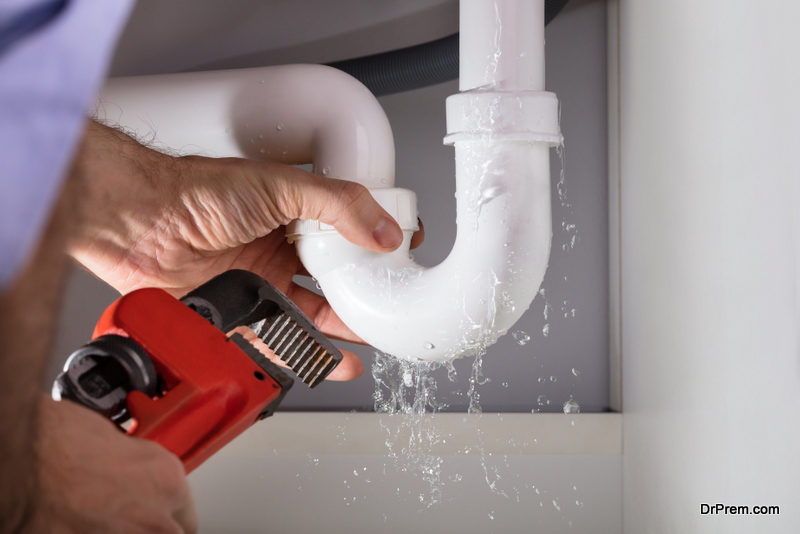 Thousands of gallons of water get wasted through leaky pipes. In Cape Town, the government did an appreciable job by repairing leaks in its water supply system and even won accolades for it. You should do the same thing at home. Get your leaks fixed by a plumber as soon as possible.
Thousands of gallons of water get wasted through leaky pipes. In Cape Town, the government did an appreciable job by repairing leaks in its water supply system and even won accolades for it. You should do the same thing at home. Get your leaks fixed by a plumber as soon as possible.
Pause before draining out water:
While putting in efforts to prepare for a drought, check whether water can be reused or not. Instead of draining out the used water, you can use for watering indoor plants or in gardens or for other cleaning purposes. You can use it for washing your car or two-wheeler.
Buy water efficient appliances:
 One drop of water wasted per second results in 2700 gallons of water wastage every year. To battle water crisis, it is wise to invest in some water efficient appliances. Replace the dripping faucets with washers. Install low-flow showerheads or aerators to restrict the water flow. Consider installing specially designed toilets and sinks that will help you conserve water.
One drop of water wasted per second results in 2700 gallons of water wastage every year. To battle water crisis, it is wise to invest in some water efficient appliances. Replace the dripping faucets with washers. Install low-flow showerheads or aerators to restrict the water flow. Consider installing specially designed toilets and sinks that will help you conserve water.
Avoid unnecessary water consumption:
Stop buying recreational water toys that need a constant flow of water. On a similar note, put off the garden fountains unless recycled water is used for the purpose.
Reduce watering your lawn:
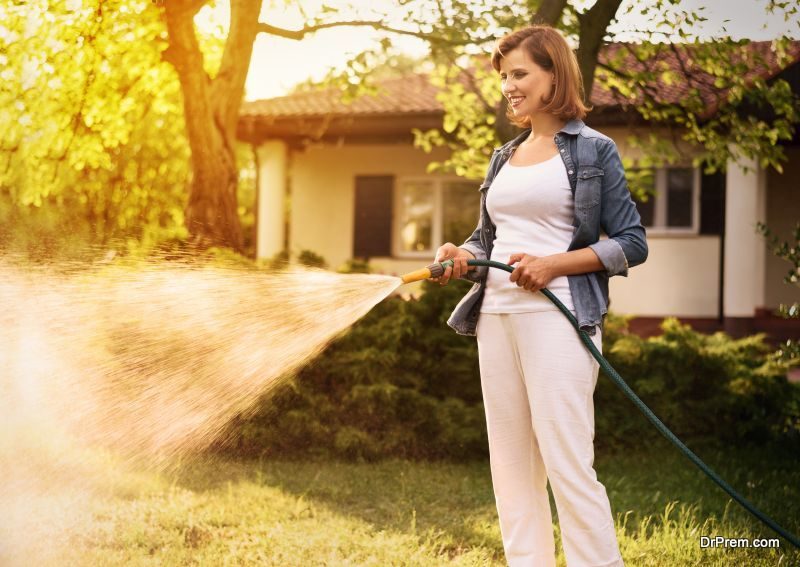 Lawns generally need watering once a week. Overwatering lawns often turns to be luxurious wastage which you cannot afford. If the drought is imminent, you may have to stop watering the lawn. Avoid watering amidst bright sunshine. Early morning and evening are most the suitable times for watering. This is applicable to your garden plants as well. Fit the sprinklers properly so that water falls on the lawn and not on the pavement. Fix timers on the sprinklers to avoid overwatering.
Lawns generally need watering once a week. Overwatering lawns often turns to be luxurious wastage which you cannot afford. If the drought is imminent, you may have to stop watering the lawn. Avoid watering amidst bright sunshine. Early morning and evening are most the suitable times for watering. This is applicable to your garden plants as well. Fit the sprinklers properly so that water falls on the lawn and not on the pavement. Fix timers on the sprinklers to avoid overwatering.
Change your bathroom habits:
Unknowingly, we invite water crisis through our habits. To prepare for drought, we need to change those soon.
- Avoid unnecessary flushing of water.
- Avoid bathing for a long time or frequently throughout the day. Have showers instead.
- Do not let the water to flow out when you are shaving, brushing or washing face. This is a very common habit and a prime source of water wastage.
Optimize water usage in the kitchen:
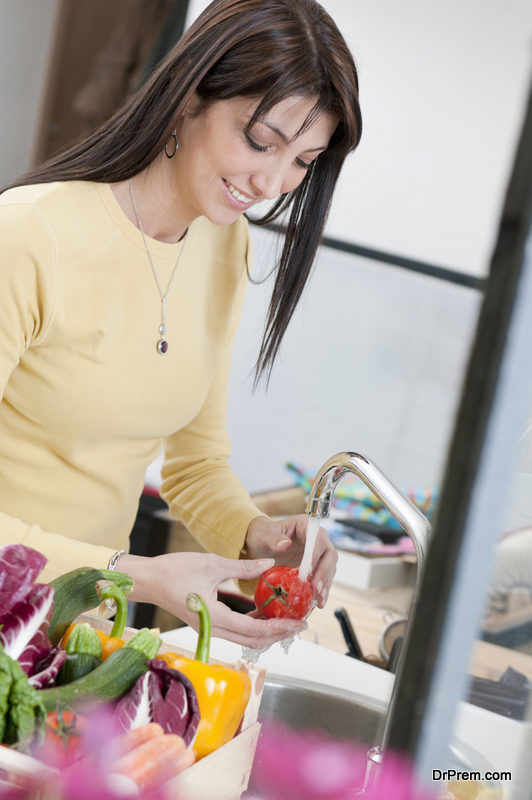 Cooking and washing need fairly a large amount of water. This can be restricted too.
Cooking and washing need fairly a large amount of water. This can be restricted too.
- Run your dishwasher in fully loaded condition with the “light wash” option. Avoid double rinsing or get a mild wash for the utensils before loading them in a dishwasher.
- If the number of dishes and utensils to be washed is small, wash them manually using just the required amount of cleansing soap. Too much usage of dish cleaners means consuming more water than required.
- Clean vegetables by soaking them in water-filled pan or utensil rather than putting them under running water from the tap.
Get a big-sized Water BOB for emergency drinking water:
You can arrange for an oversized plastic bag popularly known as Water BOB for storing drinking water to tide over emergency situations. These containers are likely to be available in 100 or 200-gallon sizes and can easily fit into your bathtub. This is a very good water storage option for city dwellers those don’t have enough space to place a large sized container. Water in this bag remains drinkable for 16 weeks.
Recharge your underground water level:
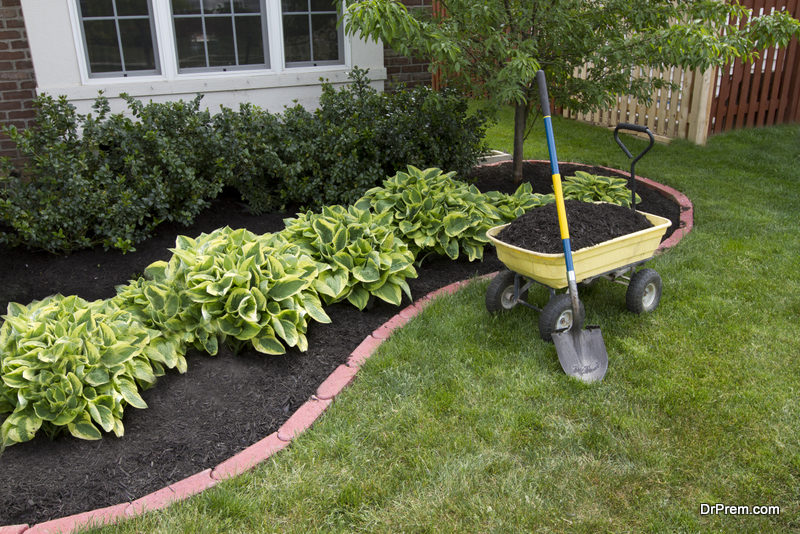 This is a long time procedure you can apply to your garden or lawn to fight drought.
This is a long time procedure you can apply to your garden or lawn to fight drought.
- Cover the bare earth with gravel or stone chips. This will not only prevent soil erosion but also help in water retention. Plants will need less watering.
- Spread mulch, dry leaves, newspaper or grass or thatching materials over the soil to allow seepage of water deep into the soil layers.
- Create sandbags with the above materials and place them strategically to divert rain water from concrete surfaces to the garden. Large bin bags will be useful for this purpose.
- Add layers of mulch around your garden plants to increase water retention and strengthen the root system. It will prevent plants from wilting during drought.
- Spike the lawn or garden soil with garden forks to allow water to infiltrate in the soil.
Spread the message of water conservation and wastage prevention in your community:
Water crisis is never an individual issue. The entire community gets hit. It is imperative for the community to be aware of this and prepare for a drought. Community members from drought-prone area must meet and discuss water usage policy. There should be organized efforts for efficient water usage to prevent day zero situation.
Promotional campaigns, advertisements and precautionary measures should be highlighted through electronic, print and digital media to create mass awareness. You can also appeal to the local civic body to get the water plumbing system of each and every household checked.
Appeal for laws to check water pollution:
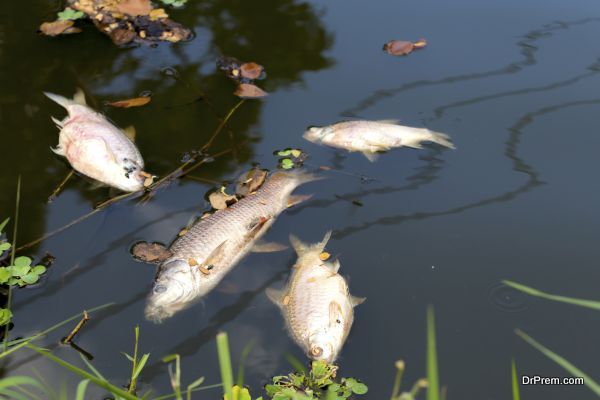
When drought hits, water pollution becomes a big concern. Misuse of local water bodies like rivers, ponds, lakes and reservoirs can create severe water problems. To prepare for a drought, it is important that the government enforces certain regulations for using prime water sources to prevent contamination.


